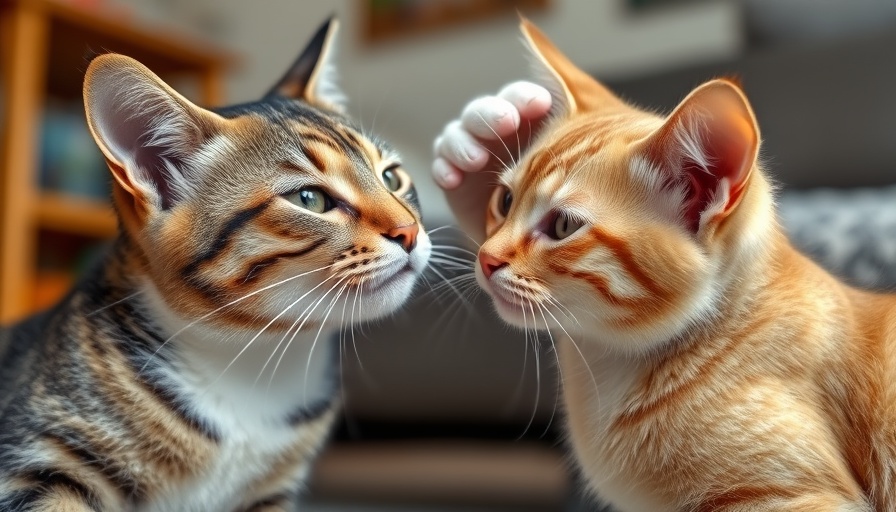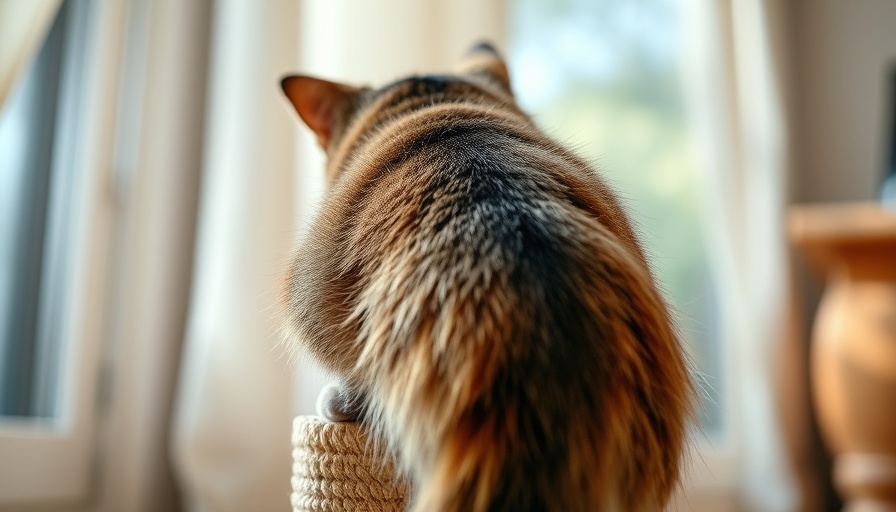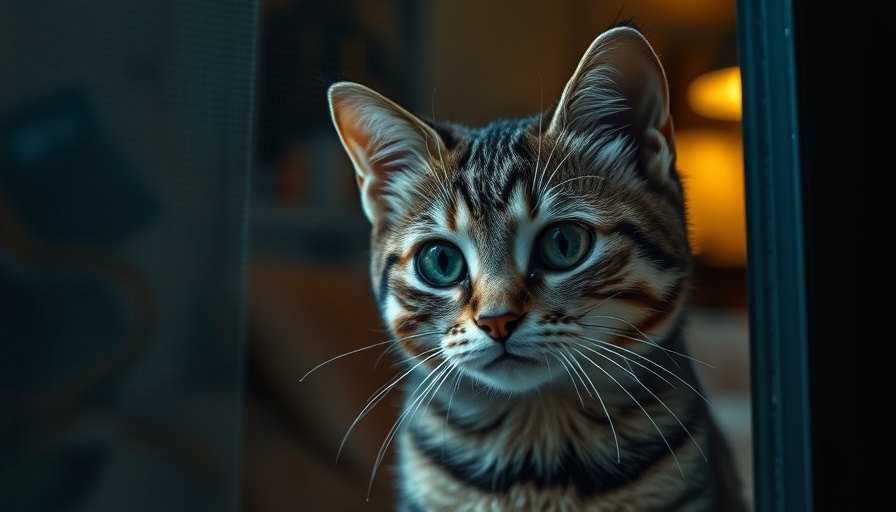
Understanding the Unique Traits of Male and Female Cats
When it comes to feline friends, male and female cats exhibit a range of behaviors that are shaped by their biology and instincts. Pet parents often notice these disparities but may not fully understand their origins. Knowing the differences can enhance your relationship with your furry companions, enabling a more harmonious household. This article sheds light on the fascinating characteristics that set male and female cats apart based on their evolutionary roles and how these traits manifest in everyday life.
In 'The REAL Differences Between MALE & FEMALE Cats!', the discussion dives into unique feline behaviors, exploring key insights that sparked deeper analysis on our end.
The Dynamics of Territoriality and Aggression
Territoriality and aggression are often associated with male cats, and for good reason. In the wild, male cats take on the responsibility of defending their territory from intruders, driven by high testosterone levels. This natural instinct carries over into domestic life—your living room, while cozy, may be viewed as a fortress that requires protection. Understanding this behavior is crucial for cat owners, especially in multicat households.
Male cats may display tendencies like patrolling their environment or even urine marking as a way to assert their dominance. To manage such behaviors, consider neutering, which significantly lowers testosterone levels. Providing separate resources such as litter boxes and food bowls can also mitigate territorial conflicts.
The Subtle Power of Female Cats
While male cats may establish dominance through behavioral displays, female cats wield their authority in more subtle ways. For instance, you might find a female cat climbing to the highest perch in your home. This behavior draws on her ancestral survival instincts, offering safety and a vantage point to survey her surroundings.
In engaging with female cats, it’s essential to recognize their unique expressions of affection, which tend to be more understated than those of male cats. They often prefer to approach on their own terms, and when they do show affection, it’s meaningful and heartfelt, enhancing the bond between you and your cat.
Play Styles: The Hunting Instincts of Gender
When it comes to play, male and female cats showcase very different approaches influenced by their ancestral roles as hunters. Male cats typically exhibit more boisterous and carefree play styles, resembling rough and tumble antics, while female cats demonstrate a more strategic hunting technique, patiently stalking their “prey” during play.
To cater to these instincts, pet owners should provide engaging interactive toys. Male cats benefit from energetic play sessions that mimic their adventurous nature, while female cats thrive on toys that allow them to showcase their calculated hunting skills.
Understanding Marking Behavior and Its Implications
Marking territory is a common aspect of cat behavior, especially among male felines. Male cats’ urine has a potent odor due to higher levels of a compound called felinine. This can be particularly challenging for pet parents to manage in a home setting. Neutering usually helps to control these marking behaviors, but environmental factors also play a significant role.
On the other hand, female cats tend to mark less but might do so when stressed. It’s essential to provide a stable environment and monitor changes like new pets or alterations in routine. Creating secure spaces can significantly reduce anxiety and unnecessary marking.
Exploring and Understanding Social Behavior
Social behavior and interactions are influenced by gender as well. Male cats are typically more sociable and willing to seek human affection, often following their owners around or jumping into laps. They enjoy frequent engagement and can quickly adapt to new people or changes in their surroundings.
Female cats, with their cautious demeanor, form deeper but quieter bonds. While they might appear less affectionate, their subtle gestures of love convey trust, which is built over time. Recognizing these differences helps create an environment that fosters comfort and security for both genders.
Why Neutering and Spaying Matter
Neutering and spaying are crucial not just for population control but also for improving behavior in both male and female cats. Neutering can significantly lower the propensity for territorial marking and reduce roaming tendencies in male cats, leading to a more grounded pet.
Spaying, on the other hand, eliminates challenging heat cycles in females, promoting a more stable temperament. Spayed females often become more affectionate as they mature, focusing less on mating instincts and more on bonding with their caregivers. In essence, these procedures contribute to healthier, happier feline companions.
Conclusion: Fostering Harmony Through Understanding
Understanding the inherent differences between male and female cats can transform the environment you create for your feline friends. By respecting their unique traits—whether it’s engaging in their playful antics or providing secure spaces for exploration—cat owners can forge stronger connections with their pets. With an understanding heart and a mindful approach to their needs, creating a loving and nuanced home for both male and female cats becomes a joyful endeavor.
If you're a pet parent looking to deepen your relationship with your feline companions, understanding their unique behaviors is key. Embrace their individuality and let it guide your interactions for a happier, more fulfilling life for both you and your pets!
 Add Row
Add Row  Add
Add 




 Add Row
Add Row  Add
Add 


Write A Comment